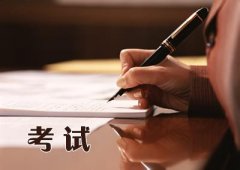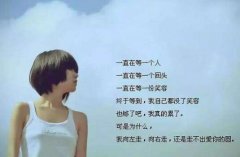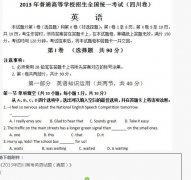2006-2013年高考英语四川卷(9)
The biggest finding in brain research in the last ten years is that the brain at any age is highly plastic. If you ask your brain to learn, it will learn. And it may even speed up while in the process.
To keep your brain young and plastic you can do one of a million new activities that challenge and excite you: playing table tennis or bridge, doing crossword puzzles, learning a language.... “When it comes to preventing ageing, you really do ‘use it or lose it’,” says Barbara Sahakian, professor at Cambridge University.
67. Dr. Merzenich’s training method mainly depends on ________.
A. speech training B. computer languages
C. the activities one joins in D. the information being dealt with
68. By saying “the brain at any age is highly plastic”, the writer probably means the brain can be________.
A. used B. mastered C. developed D. researched
69. What can we learn from the text?
A. Practice makes a quick mind.
B. Brain research started ten yeas ago.
C. Dr. Merzenich is a scientist in computer.
D. People believed nothing could stop the brain slowing down.
70. Which of the following agrees with the writer’s idea?
A. The training methods work better for the old.
B. People should use the brain to stop it from ageing.
C. The training of the brain should start at an early age.
D. It’s necessary to take part in as many activities as possible.
E
I entered high school having read hundreds of books. But I was not a good reader. Merely bookish, I lacked a point of view when I read. Rather, I read in order to get a point of view. I searched books for good expressions and sayings, pieces of information, ideas, themes — anything to enrich my thought and make me feel educated. When one of my teachers suggested to his sleepy tenth-grade English class that a person could not have a “complicated (复杂的) idea” until he had read at least two thousand books, I heard the words without recognizing either its irony (嘲讽) or its very complicated truth. I merely determined to make a list of all the books I had ever read. Strict with myself, I included only once a title I might have read several times. (How, after all, could one read a book more than once?) And I included only those books over a hundred pages in length. (Could anything shorter be a book?)
There was yet another high school list I made. One day I came across a newspaper article about an English professor at a nearby state college. The article had a list of the “hundred most important books of Western Civilization.” “More than anything else in my life,” the professor told the reporter with finality “these books have made me all that I am.” That was the kind of words I couldn’t ignore (忽视). I kept the list for the several months it took me to read all of the titles. Most books, of course, I hardly understood. While reading Plato’s The Republic, for example, I needed to keep looking at the introduction of the book to remind myself what the text was about. However, with the special patience and superstition (迷信) of a schoolboy, I looked at every word of the text. And by me time I reached the last word, pleased, I persuaded myself that I had read The Republic, and seriously crossed Plato off my list.
71. On hearing the teacher’s suggestion of reading, the writer thought________.
A. one must read as many books as possible
B. a student should not have a complicated idea
C. it was impossible for one to read two thousand books
D. students ought to make a list of the books they had read
72. While at high school, the writer________.
A. had plans for reading B. learned to educate himself
C. only read books over 100 pages D. read only one book several times
73. The underlined phrase “with finality” probably means
A. firmly B. clearly C. proudly D. pleasantly
74. The writer’s purpose in mentioning The Republic is to________.
A. explain why it was included in the list
B. describe why he seriously crossed it off the list
C. show that he read the books blindly though they were hard to understand
D. prove that he understood most of it because he had looked at every word
75. The writer provides two book lists to ________.
A. show how he developed his point of view B. tell his reading experience at high school
C. introduce the two persons’ reading methods D. explain that he read many books at high school
第二卷(共35分)
第四部分 写作(共两节,满分35分)
第一节 短文改错(共10小题;每小题1分,满分10分)
An Australian farmer found the kangaroo caught in the fence around his farms. He thought the poor animal was
injured, but the kind farmer took off his jacket and put on the animal. Then he started trying to cut the fence free
the animal. But as soon as the kangaroo were free, it jumped up and ran away with the jacket. The farmer was
worried because of his wallet was in the pocket. But, to my surprise, when he gets home, he saw the animal
waiting at the door, still wore his jacket with the wallet in the pocket.
第二节 书面表达(满分25分)
假设你是李华,你的英国笔友Henry 最近来信,询问你高考后的暑期安排。请你根据以下要点,用英语回一封信,说明你的计划,并简述理由。
1. 休息; 2.读书; 3.陪伴父母; 4.参加社会活动;
注意: 1.词数100左右,信的开头和结尾已为你写好(不计入总词数);
2.可根据内容要点适当增加细节,使行文连贯;
3.参考词汇: 高考——college entrance examination 社会活动——social activities
Dear Henry,
I’m glad to receive your letter.




